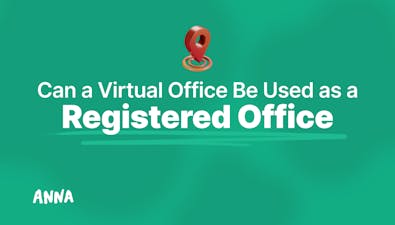
7 ways the Spring 2024 budget will affect your small business



Whenever a new budget lands it’s always so long that it’s hard to pinpoint the changes that will actually affect you – so we’ve done it for you! ANNA’s Accounting and Tax expert Aftab Hussain brings you the 7 key changes that will affect small businesses the most..


- In this article
- VAT registration threshold increase
- VAT deregistration increase
- Leased assets can now be offset against tax
- Lower National Insurance contributions for employees
- Further cuts to National Insurance for the self-employed
- Furnished Holiday Lettings regime abolished
- Higher rate of Capital Gains Tax on properties has been reduced
VAT registration threshold increase

From the start of April 2024, the VAT registration threshold will increase from £85,000 to £90,000. This is great news for small businesses that are currently bordering on the existing VAT threshold limit year-on-year, and now have an extra £5,000 of potential income before they have to register.
Registering for VAT means charging customers VAT, filing VAT returns every 3 months with HMRC and paying and receiving VAT payments with HMRC. So it can be costly and take up a lot of time (unless you’re an ANNA customer of course – because we help to make managing your VAT easy and affordable).
VAT deregistration increase
And that’s not the only VAT news. From 1 April the VAT deregistration threshold is also being increased to £88,000. So if your VAT-able sales dip below this figure you’ll be eligible to deregister from VAT registration. At the moment, the threshold stands at £83,000.
Leased assets can now be offset against tax

‘Full expensing’ lets businesses offset investment in items like new factory machinery and IT equipment against tax. However, until now this didn’t apply to items that were leased. Now, if you have a laptop on lease and the total value of that rented laptop is £2k, you’d now be able to claim back £380 in corporation tax (if you’re paying corporation tax at 19%).
Lower National Insurance contributions for employees

From 6 April the National Insurance contributions that come out of your wages through PAYE will go down 2% to 8%. Whether you’re a director on the payroll or an employee, this means more take-home pay. Someone on an average salary of £35,000 per year will have an extra £450 a year in their pocket.
Further cuts to National Insurance for the self-employed
From 6 April the main rate of Class 4 self-employed NI contributions will drop to 6%, which is a 2% decrease from the previous rate. This reduction comes on top of the 1% cut announced in the Autumn Statement.
These changes mean that the average self-employed person earning £28,000 could save £650 per year.
And that's not all – when combined with the abolition of Class 2 NICs announced in the Autumn Statement, you’ll no longer be paying these contributions at £3.45 per week if your profits exceed the lower profits threshold of £12,570.
(To clarify, Class 2 and Class 4 National Insurance Contributions are payments made by the self-employed to qualify for state benefits, with Class 2 being a flat-rate contribution and Class 4 being based on profits).
These cuts to National Insurance will provide some modest relief to the self-employed.
Furnished Holiday Lettings regime abolished
The Furnished Holiday Lets (FHL) regime, which provided tax benefits to people renting out properties for short-term holiday stays - rather than long-term lets - is set to be abolished in April 2025.
Second home-owners who make extra income from their holiday home (by making it available on platforms like Airbnb, for example) will be affected, making this a less attractive investment opportunity. This announcement effectively means that short-term and long-term rentals will be treated the same for tax purposes, doing away with the status of second homes being treated as a business rather than a property rental.
Previously, an owner of a property earning £30,000 in rent could save up to £4,000 per year in income tax through the furnished holiday lettings (FHL) regime, which allowed capital allowances, capital gains tax reliefs and deductions of finance costs, which aren’t available through normal property rental income rules.
Higher rate of Capital Gains Tax on properties has been reduced
It’s not all bad news for holiday-let property owners though, as the higher rate of capital gains tax rate on selling residential property has been reduced from 28% to 24% - providing some relief if they decide to sell the property. The lower rate capital gains tax rate remains at 18%.
If you have any other questions around tax, VAT or National Insurance head to our friendly – and free – Tax Terrapin to get almost instant answers.
Open a business account in minutes






